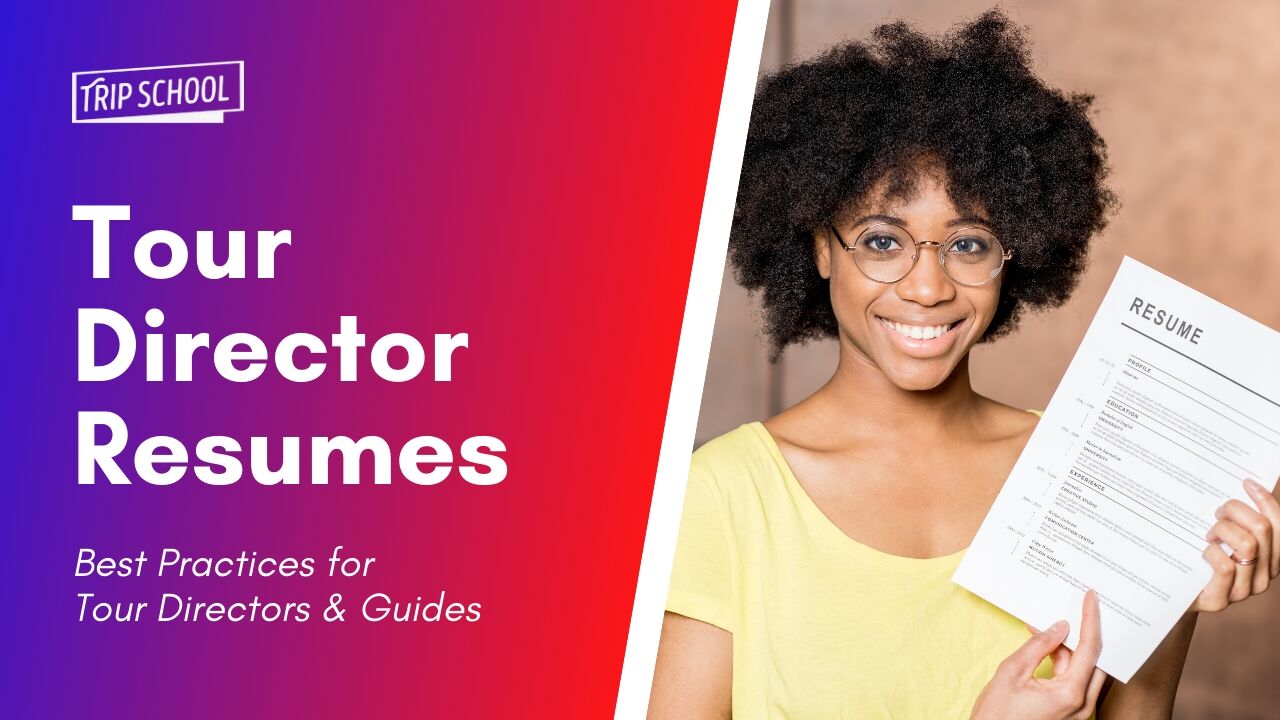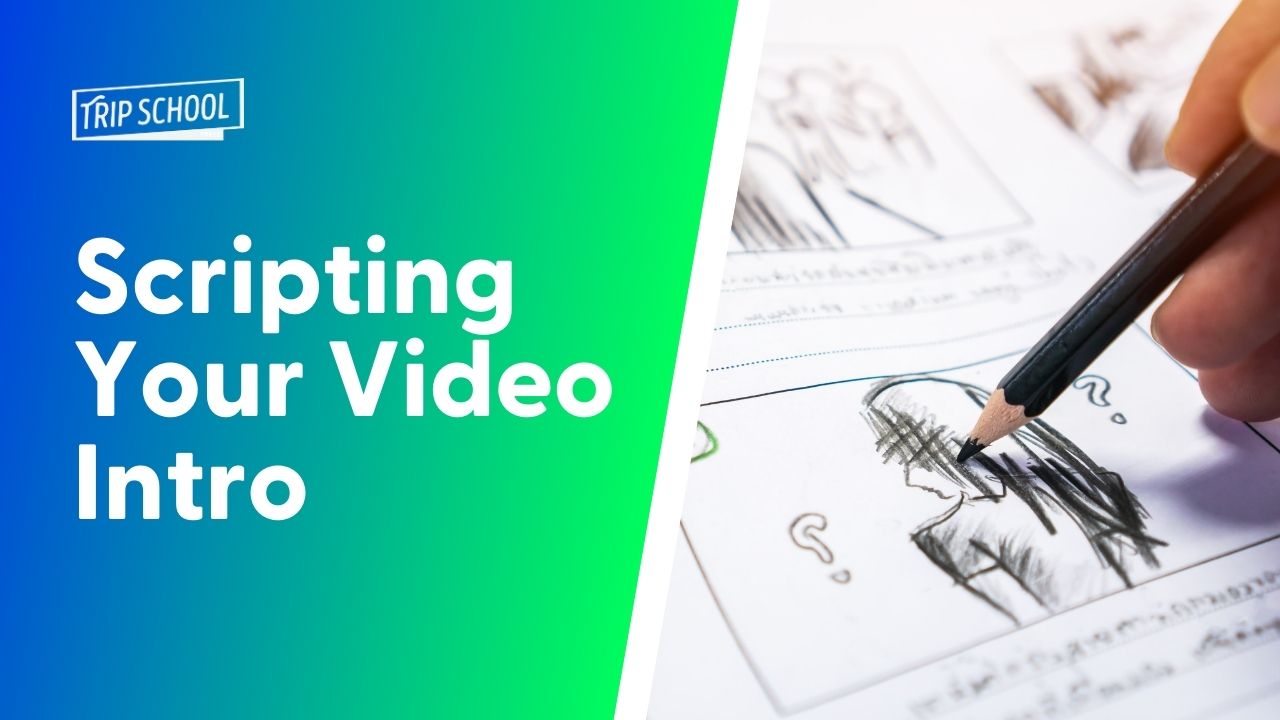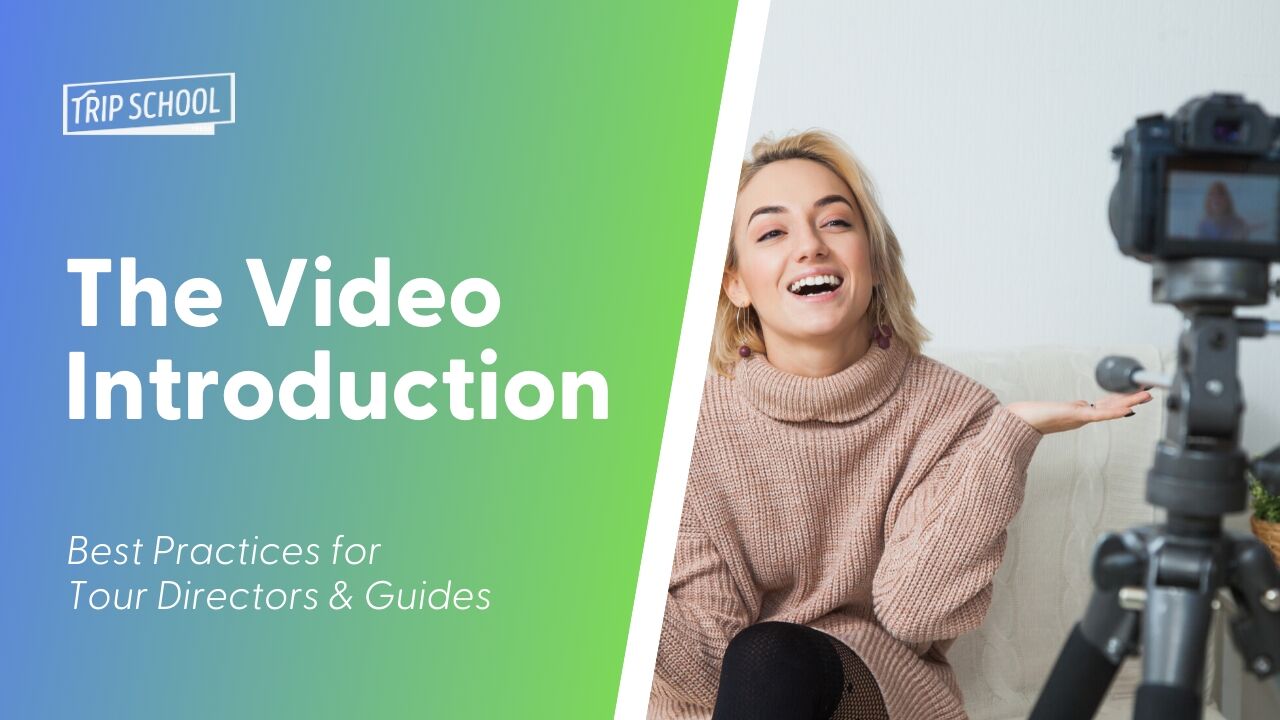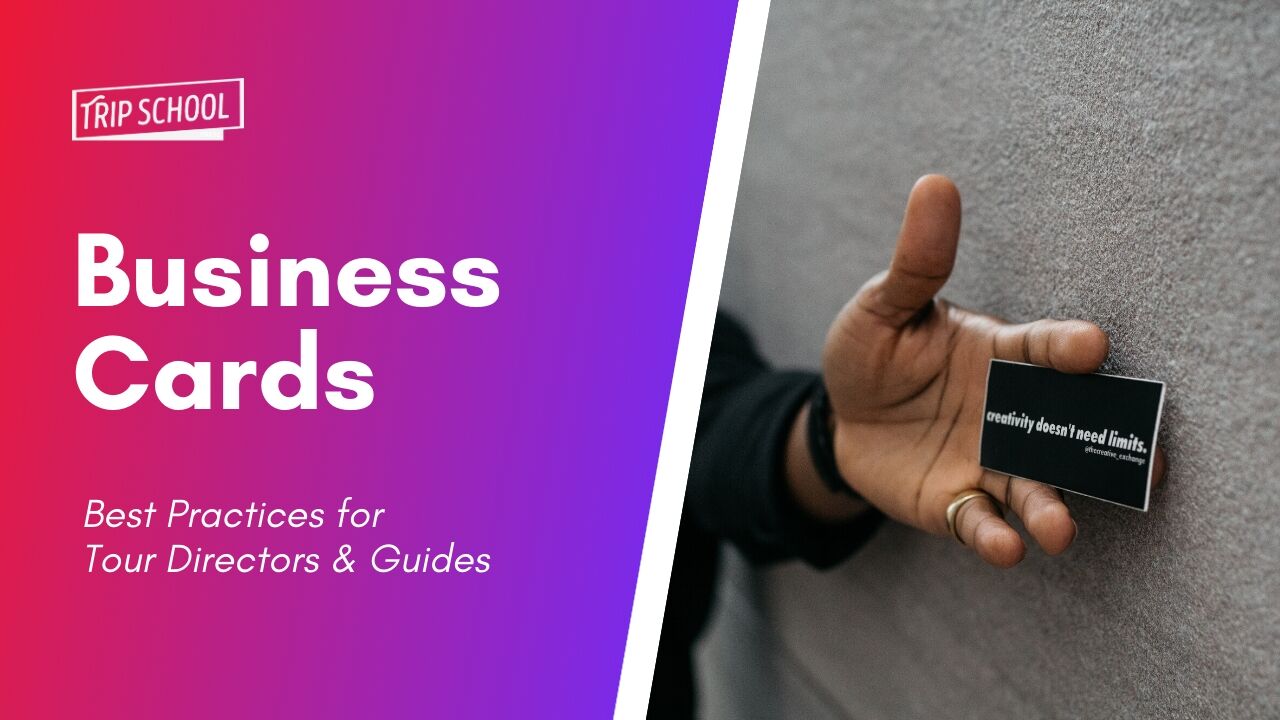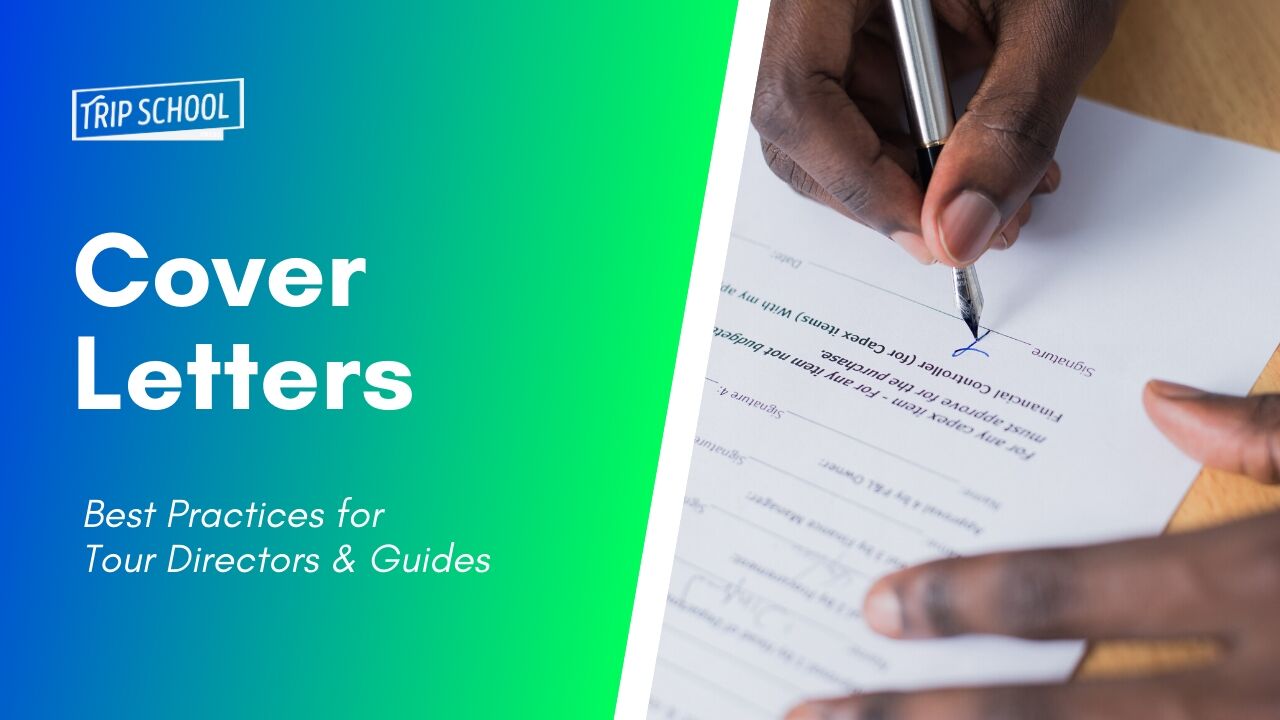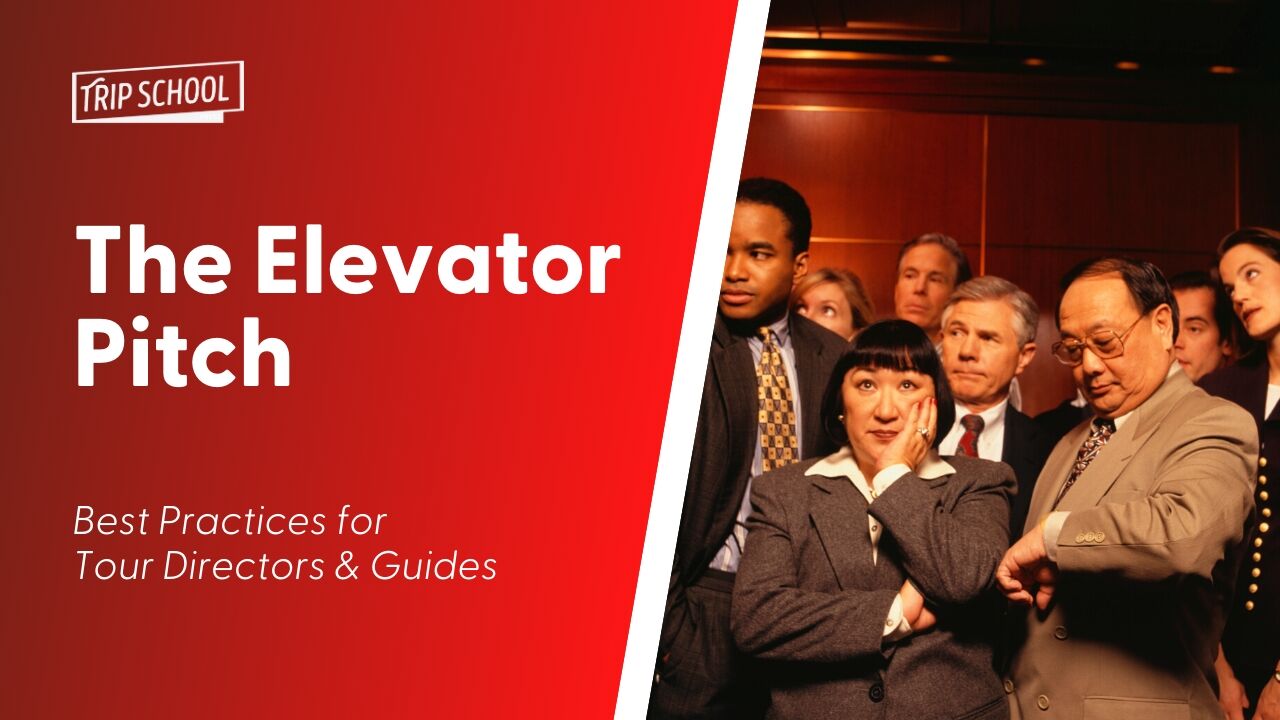What makes a great tour director resume?
The tour director resume is a funny thing: it’s different than any resume you’ve created before, and each tour company looks for different things. Add to that the fact that each tour operator has their own opinions about what it should look like, and what information should be on it, it’s enough to drive you crazy!
Think of your tour director resume as a conversation starter.
In person at a hiring conference, both our experts said they scan your resume quickly, in order to start an interesting conversation with you. That means you should have interesting items that are conversation worthy! Save any extraneous or boring information for your actual application. And make sure your resume is easily scannable, and not so dense that they can’t find the most interesting parts of your story.
Hobbies and interests are really important!
Work experience might be interesting (you were a naval officer! you performed on Broadway!) or pretty boring (you worked as a paint watcher for 7 years!). But both our experts said they really gravitate towards your personal hobbies and interests, in order to get a real, personal picture of who you are. Biggest tip: don’t say you love to travel! Too obvious. Make sure your interests are specific and interesting! One of our reviewed resumes even said “ask me about this story, it’s good!” and that impressed our experts.
Be concise!
We came back to this over and over. Jacque and Mary Ellen both often thought there was simply too much on the page. Think deliberately about each thing you add to the page. Does it tell the story of who you are? And if you are new to the industry, don’t worry so much if your resume feels light or simple… they love it!
Stick to one page.
Our experts were in absolute agreement that your resume shouldn’t spill onto one or two or three pages.
Edit for clarity and concision!
Tour operators see so many resumes, they’re not going to spend time hunting for information. Make sure you remove anything that’s pointless. For example, you don’t need an objective. Mary Ellen put it nicely: “we get it! You’re at a tour director hiring conference… you want to be a tour director!” Don’t list the exact number of days of your tours, or DC guide license numbers, or passenger counts of your tours. Get rid of anything that doesn’t tell the story of you.
Do your company research, and tailor the resume as much as you can to that company.
This is a tall order, especially if you’re interviewing at a hiring conference with dozens of tour companies. But there are simple edits you can make. If you know Mary Ellen, for example, is only interested in a few destinations, then don’t include a huge rundown of everywhere you’ve ever traveled! Remove some of your student work and highlight adult work if you’re aiming for a high-end adult company. This means you need to utilize your existing network, or forums like the IATDG Facebook Forum, to try and understand what a company needs and wants. Mary Ellen even mentioned that she’s open to prospective tour directors reaching out to her to ask for better information on their needs, so don’t be shy!
Create your own headings/categories to tell your story.
You don’t have to stick to standard resume categories like “work experience.” If you want to showcase the way your previous work showed leadership, then create a “Leadership Experience” category! Make them up in order to fit who you are, and don’t worry about being “right.”
Create your own format.
We looked at lots of different resumes in many different formats, and our experts agreed that they’ll look at any format that’s clean, clear, expresses who you are, and doesn’t feel too cluttered or indecipherable. There’s no, single “correct” resume format, as long as you follow the general guidelines laid out here.
Assume future tour operators know your past employers.
The large group tour industry is a small world when it comes to hiring. Many of the hiring managers have been at this for a long time, and know all the other companies. And they’re friends, which means they may very well call each other to ask about your performance, or why you’ve decided to move on from that company. So be careful how you represent your work with another TO.
No need for references or tour reviews or scores.
They’ll ask for those later, if they want them at all. Each company has different evaluation metrics, and both our experts agreed that including positive reviews or scores doesn’t really say much, because you’re obviously going to hide any of the negatives!
Include a photo, and make sure it evokes your personality!
As with a corporate resume, companies can’t legally ask for your photo. But in the tour director world, it’s standard industry practice to include it voluntarily. But make sure the photo is a clear, high-resolution face shot so you don’t look like a member of the Witness Protection Program. Look like who you are! If you love adventure and the outdoors, present an image that conveys that. Get away from a sterile, drab corporate-style photo, and show us who you really are. Don’t paint a false picture of yourself that you think the company wants to see. One of our sample resumes showed an image of a man in a kayak, and even though Tauck doesn’t do rafting trips, Jacque liked seeing his personality in that image.
Think twice before going crazy with destination knowledge!
This should be a big relief to everyone: neither of our experts was terribly interested in long laundry lists of destination knowledge. Mary Ellen was a bit extreme: she’s laser focused on certain destinations, because of her company’s needs, so she didn’t care to see any destination knowledge that’s not what she needs. Jacque’s company sends people all around the world, and while they may be hiring you for a specific tour or area, she said she likes to see other regions you’re familiar with, to plan for your future in the company. Either way, simplicity is key, and you should think strategically about whether destination knowledge will help you land a job with the company. If you know they’re hiring for California tours, then trim down that section, and instead highlight your California experience in your cover letter.
You don’t need to account for every year you’ve been alive!
Corporate resumes are very different than a tour director resume. An HR manager for a giant health care corporation might be concerned if they don’t see that you’ve worked nonstop for years. But tour operators want to see that you have experience in the kinds of skills that will matter as a tour director. They’re not as easily impressed by big job titles and fancy terminology. Be a human being on your resume, not a sanitized, corporate cog!
Your video introduction is important.
Both tour operators said they love seeing an introductory video . This is the fastest way to reveal who you really are, but it has to be done well. (We teach a whole online class on just this subject, it’s so important!). What’s the ideal length? According to our experts, they’ll keep watching as long as it’s interesting! But it’s not easy. You need to make sure you get the video and audio right, edit it for clarity and concision, and make sure the link is easy to click on if they read your resume online, and easy to type in if they’re reading it on paper (hint: use a link shortener like tinyurl.com to make it easier to type in).
Consider carefully what should be placed on a cover letter, and what should be on a resume.
These two pieces go together. Your cover letter begins telling your story, and the resume continues that story. Don’t make either two long, and make sure both complement each other. Example: some trainings or destination knowledge might be great to highlight in your cover letter, but don’t belabor the point with more about it on your resume. Another tip: make sure your cover letter appears in the body of your email, so they don’t have to open two attachments.
Don’t take it personally if you’re not chosen for a job, but your friend is.
Tour operators are sometimes looking for very specific skills or areas of expertise. They may need someone with a certain passport or language fluency, or for you to be based in a specific region. The hiring process is about matchmaking, and you’ll find your place in this industry, just stay positive.
Finally, tell the story of you through your resume.
This is the most essential thing: tour operators are trying to get a sense of you from this document. This job is so much about personality and service to others. A lot of the logistics and destination knowledge can be taught. After our session, Jacque followed up with an email that serves as a nice summation of everything we talked about.
“I suggest that candidates think about writing their resumes and/or coverletters with the perspective of solving a problem for the employer. Rather than just listing their past work experience, think about which of their life experiences may help solve a need. Show us your versatility and adaptability! Share life experiences that are unique, make you stronger, more interesting, more dynamic; it is those things that make you stand out and may be more likely to catch my eye.
I think we made it clear in the session, but we see many many many resumes. Everyone loves to travel! Show us your skills in customer service, leadership, public speaking experience, teaching, teamwork, and organization!”
That’s it for now! We hope you find this professional development series helpful, and sets you up for success in this industry!

